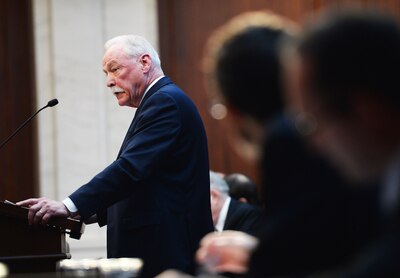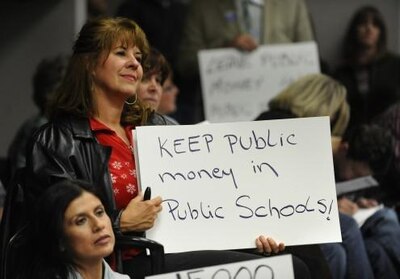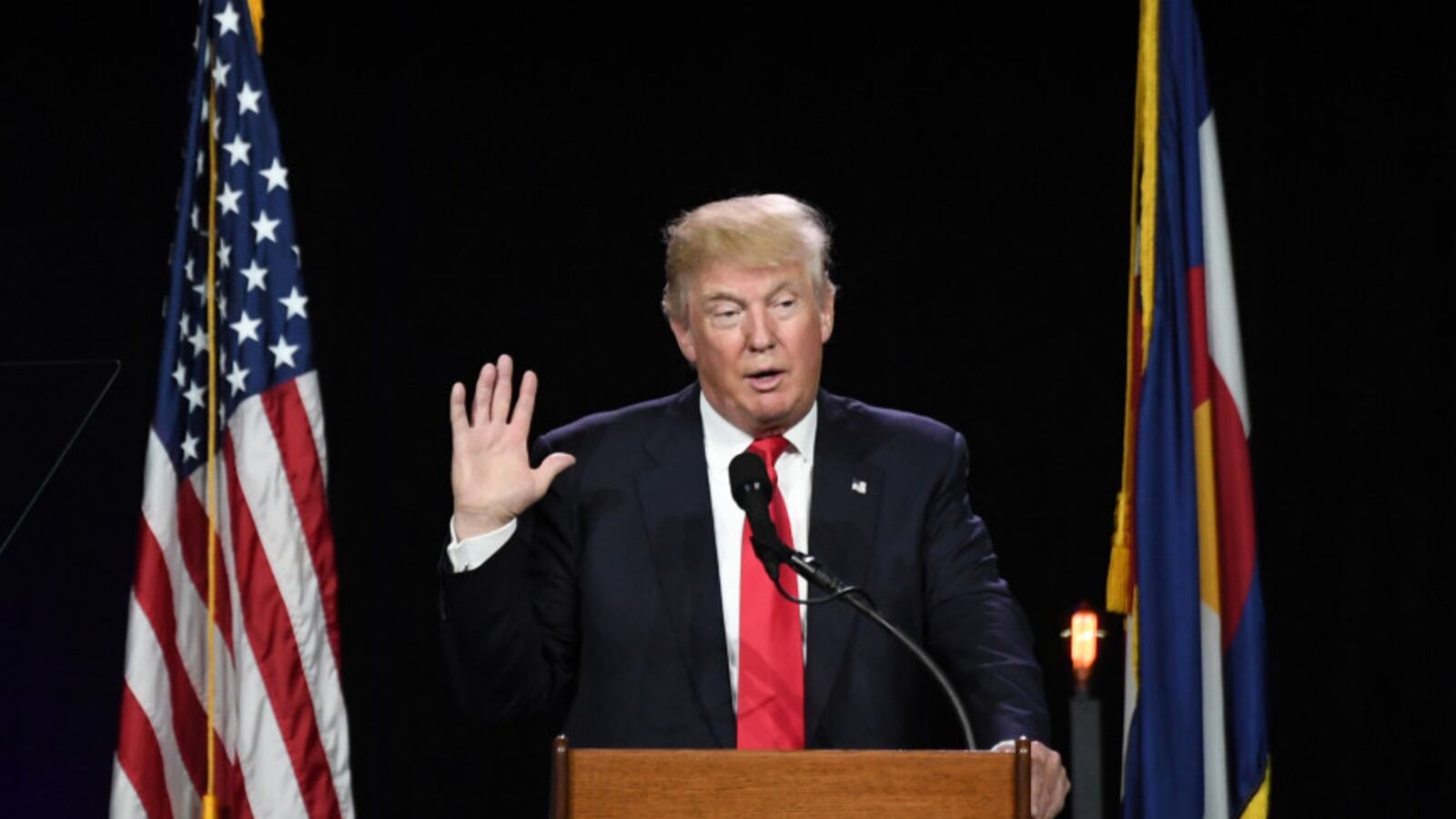Donald Trump’s selection of conservative Michigan billionaire Betsy DeVos to lead the federal education department has spurred plenty of speculation about whether the new administration can make good on a campaign promise to fund a nationwide school voucher program.
DeVos is an adamant supporter of vouchers and has spent her personal wealth to champion advocates of school choice including some in Colorado, such as U.S. Sen. Cory Gardner, a Republican from Yuma.
Gardner, who supports vouchers, received $5,200 from DeVos during his 2014 Senate run.
Trump’s plan, outlined in one of his few education policy speeches, pledged $20 billion of existing federal dollars to be sent to the states as grants for low-income students to use at private schools.
Details have yet to surface, and likely won’t for several more months. And while it would be a significant uphill battle for that plan to become federal law and an even greater feat for vouchers to become a reality in Colorado, it isn’t totally outside the realm of possibility.
Here’s how a Trump administration bring vouchers to Colorado, a state that has wrestled with the thorny subject for nearly two decades.
First, Congress would have to act.
That’s a big first step, especially since lawmakers in Washington just passed bipartisan legislation that rewrote the nation’s education laws.
“Lawmakers used a lot of time and effort in Congress to write the Every Student Succeeds Act,” said Michelle Exstrom, a program director for the National Conference of State Legislatures.
She added that many Republican lawmakers walked away happy and are likely to turn their attention to other issues, such as health care reform.
Even if there was interest in passing new legislation that would authorize a federal voucher program, the money would need to come from somewhere. As Education Week pointed out, lawmakers probably won’t be in keen on repurposing any current federal funds spent on education.
But let’s pretend everything goes as planned in Washington. Then what?
For a federal voucher plan to fly in Colorado, it would have to meet at least two basic legal requirements: First, the program would have to be voluntary for local school districts. Second, no state funds could be used to fund vouchers to religious schools (at least for now).

Both requirements stem from previous state Supreme Court decisions on vouchers.
The first decision was handed down in 2004 after Republican Gov. Bill Owens and a Republican legislature tried to create what would have been the largest statewide voucher system at the time. The plan would have allowed students in 11 low-performing school districts to use 85 percent of the state’s per pupil funding amount to go to a private school.
The Colorado Supreme Court, however, ruled that the state could not mandate how school districts use the local tax revenue that funds their schools. That, the court said, would violate the state’s constitutionally protected local control of schools. (The state’s per pupil funding amount is made of taxes collected by the state and local counties.)
The second decision comes from a more recent Supreme Court decision about the Douglas County School District’s voucher plan. The Supreme Court ruled the program was unconstitutional. While four justices said the program was unconstitutional, only three said it was violated a part of the constitution that forbids state funds to be used at private religious schools.
Eric Hall, who represented the Douglas County School District, argues that creates some ambiguity about whether Colorado could use state funds to match federal dollars.
“There isn’t a precedential ruling on whether (the constitution) prohibits tax dollars being spent at private religious schools,” he said. “That will have to be ironed out at some point.”
But Mark Silverstein, legal director for the American Civil Liberties Union of Colorado, said he believes the constitution is clear on the matter.
“I would imagine the state constitution would remain a bar for the state participating in a plan that sends state money to private religious schools,” he said.
The Douglas County School District has appealed the state Supreme Court’s decision to the U.S. Supreme Court.
So let’s say Trump’s plan doesn’t require states to kick in money and that school districts could volunteer for the program. What still has to happen to get vouchers in Colorado?
The state education department likely would be responsible for running the program. But before the department would participate, it would seek input from the State Board of Education, the legislature and the governor, said Patrick Chapman, executive director of federal programs for the department.

“We would not move forward with anything that would be illegal or go against their wishes,” Chapman said.
While the governor has never taken a position on vouchers, a split legislature in which Democrats control the House and a state board soon to be controlled by Democrats by one vote does not bode well for voucher supporters.
Rebecca McClellan, a Democrat from Centennial whose recent victory will flip the balance of partisan control on the state board, campaigned on protecting “neighborhood schools” and opposing vouchers.
“I do not favor voucher schemes that drain funding from our public schools and make an already challenging financial picture that much harder,” McClellan said at a candidate forum in Aurora.
Douglas County makes up a small portion of the district McClellan will represent.

